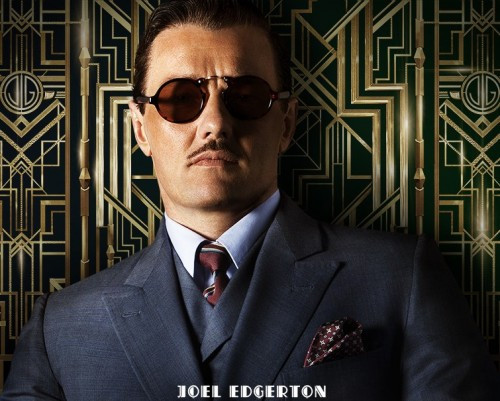Tuesday
Certain literary works have become so applicable to Donald Trump’s rise that it has become a cliché to use them. My nominations for the top three are Frankenstein, Doctor Faustus, and (today’s subject) The Great Gatsby.
To sum up how people are using the first two, Trump is a monster that Republican politics created and that got out of control. (Nixon’s “southern strategy” began the process.) The Faustus story, meanwhile, continues to unfold as Republicans, in exchange for judgeships and tax cuts for the wealthy, sell their souls by overlooking Trump’s horrors.
Pundits writing about Trump and the current GOP frequently cite Nick Carraway’s famous summation of Tom and Daisy Buchanan to describe what we can expect:
I couldn’t forgive him or like him but I saw that what he had done was, to him, entirely justified. It was all very careless and confused. They were careless people, Tom and Daisy–they smashed up things and creatures and then retreated back into their money or their vast carelessness or whatever it was that kept them together, and let other people clean up the mess they had made. . . .
Years from now, if not decades, we will be living with the aftermath of Trump’s smash-ups. Here’s an example that exactly fits Carraway’s scenario: after traumatizing children and their parents with his zero-tolerance separations at the border, Trump feels no obligation to clean up the mess but tries to hand off the job to the ACLU.
Probing further into the passage gives us an even deeper understanding of entitlement. Immediately before Nick makes his observation, he describes a Tom Buchanan who rationalizes, evades, and feels sorry for himself much as Trump does. Okay, so he told his mistress’ husband that Gatsby was responsible for her death (he wasn’t), but what could he have done? Gatsby deserved it and, besides, Tom’s the one who’s really suffering:
“Tom,” I inquired, “what did you say to Wilson that afternoon?”
He stared at me without a word and I knew I had guessed right about those missing hours. I started to turn away but he took a step after me and grabbed my arm.
“I told him the truth,” he said. “He came to the door while we were getting ready to leave and when I sent down word that we weren’t in he tried to force his way upstairs. He was crazy enough to kill me if I hadn’t told him who owned the car. His hand was on a revolver in his pocket every minute he was in the house—-” He broke off defiantly. “What if I did tell him? That fellow had it coming to him. He threw dust into your eyes just like he did in Daisy’s but he was a tough one. He ran over Myrtle like you’d run over a dog and never even stopped his car.”
There was nothing I could say, except the one unutterable fact that it wasn’t true.
“And if you think I didn’t have my share of suffering–look here, when I went to give up that flat and saw that damn box of dog biscuits sitting there on the sideboard I sat down and cried like a baby. By God it was awful—-“
Entitlement is a powerful shield and, as we are seeing with Trump, it enables powerful white men to get away with a lot. It’s much harder to hold Trump accountable than it is a person of color (Barack Obama) or a woman (Hillary Clinton).
New York Magazine’s Frank Rich also makes use of Gatsby in an important article on the continuing price we are paying for the crash of 2008. Rich looks at the confluence of accelerating income inequality and the resurgent white nationalism:
Trump’s nationalistic right-wing populism, which scapegoats immigrants and minorities to deflect rage from [Trump’s former chief economic advisor and Goldmann Sachs alum Gary] Cohn and his fellow profiteers, is nothing new. As [Sarah] Churchwell tracks in Behold, America, the original America First movement of the 1920s and ’30s grew in tandem with the widening economic discrepancies of the time. She reminds us that the plutocratic villain of The Great Gatsby, Tom Buchanan, is a white supremacist prone to observations like “if we don’t look out the white race will be … utterly submerged” and “It’s up to us who are the dominant race to watch out or these other races will have control of things.” Up against such powerful one-percenters, the vision of limitless human potential implicit in Jay Gatsby’s innocent American Dream didn’t stand a chance. As Churchwell writes, “Between 1923 and 1929, 93 percent of the country experienced a drop in per capita income,” even as a rise in monopolies and mergers left “only two hundred large corporations in control of over half of American industry” and one percent of the population owning 40 percent of America’s wealth.
The Washington Post’s Philip Bump recently wrote about how, under Trump, “the rich get richer, and the poor get distracted.” The assumption is that (here’s the Faustian bargain again) the rich, while socially liberal, are willing to sell out for special favors. To riff off of Richard Lovelace’s “To Lucasta Going Off to Wars,” “I could not love thee (Dear), so much, loved I not tax cuts more.”
But what if there’s no contradiction at all? What if Trump’s wealthy supporters are Tom Buchanans only quieter about their prejudices? That would help explain Trump’s high approval ratings amongst Republicans. He’s not just scoring with poor white men.
After all, if you feel entitled, then the enemy is anyone who threatens your privilege. And if things smash up when you’re defending it, there is always someone else to come in and clean up the mess.


